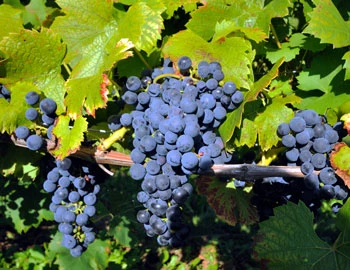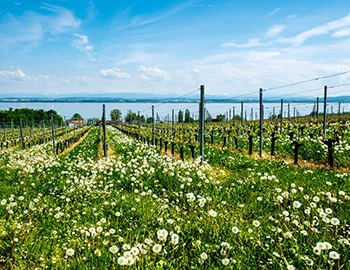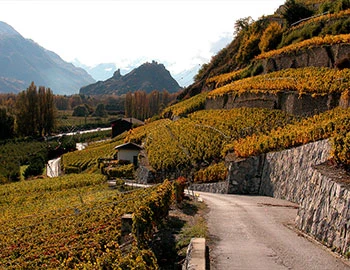
Oeil de Perdrix Réserve BAUR AU LAC VINS 2022
AOC Neuenburg, Château d'Auvernier, 375 ml

| Grape variety: | Pinot noir |
| Producer: | Château d'Auvernier / Thierry Grosjean |
| Origin: | Switzerland / Neuenburg / Neuenburg |
| Other vintages: |
Description
This rosé classic seduces with an intense, fruity bouquet that reminds of strawberries, oranges and delicate flowers. A soft, berry-fruity, luscious and yet fresh rosé. Its hint of residual sweetness playfully spreads with the fruit aroma on the palate and ends in a juicy, mineral finish.
Attributes
| Origin: | Switzerland / Neuenburg / Neuenburg |
| Grape variety: | Pinot noir |
| Ripening potential: | 1 to 2 years |
| Drinking temperature: | 10 to 12 °C |
| Food Pairing: | Italian antipasti, Apéro riche, Crispy roast chicken |
| Vinification: | cooling period, soft pressing, fermentation in steel tank, fermentation at low temperatures |
| Harvest: | hand-picking |
| Maturation: | in steel tank |
| Volume: | 12.5 % |
| Note: | Contains sulphites |
Pinot noir
Blueprint of the terroir
No other variety expresses its terroir as precisely as Pinot noir. It is a sensitive, fragile grape. But when it succeeds, it gives the world some of its very greatest wine plants. It especially excels in Burgundy, where it has been cultivated for at least 700 years. Even in the middle ages, it was considered so precious that it was kept separate from other grapes so as to not diminish its value. The finest examples are delicate and fragrant with aromas of cherries and red berries. With maturity, notes of forest floor, leather and truffles enter as well. An irresistible fruity sweetness still shines through, even after several decades. The Pinot noir does well in cool locations: in Switzerland and in Germany, where it is known as Blauburgunder and Spätburgunder respectively; in Alsace and in South Tyrol, in Oregon, New Zealand and Tasmania. Not least, it yields fantastic champagnes. It is a wonderful culinary companion. With its soft tannins and charming bouquet, it meshes with everything, from Güggeli and cheeses to fried fish.

Neuenburg
Neuchâtel: the Burgundy of Switzerland
Neuchâtel is considered the stronghold of the art of watchmaking. The precision that characterizes the clockwork mechanisms can also be found in many crus here, which grow on calcareous soils. The narrow strip between Lake Neuchâtel and the southern rim of the Jura Mountains is the perfect terroir for Chasselas, but also for Pinot Noirs, which present Burgundian characteristics. With the white “Non Filtré” and the indigenous “Oeil de Perdrix”, vintners in Neuchâtel have two particular specialties.

Switzerland
Switzerland – A small country with enormous diversity
Switzerland is famous for its banks, watches, and cheese, but not necessarily for its wine. The Swiss didn't invent wine, but they have been extremely open and curious to it. Wine culture arrived in what is now modern Switzerland via several routes: from Marseilles to Lake Geneva and the Lower Valais region; from the Aosta Valley through the Great St. Bernard Pass to the rest of Valais; from the Rhone through Burgundy, across the Jura Mountains to Lake Constance; and from Lombardy to Ticino, and then on to Grisons.


